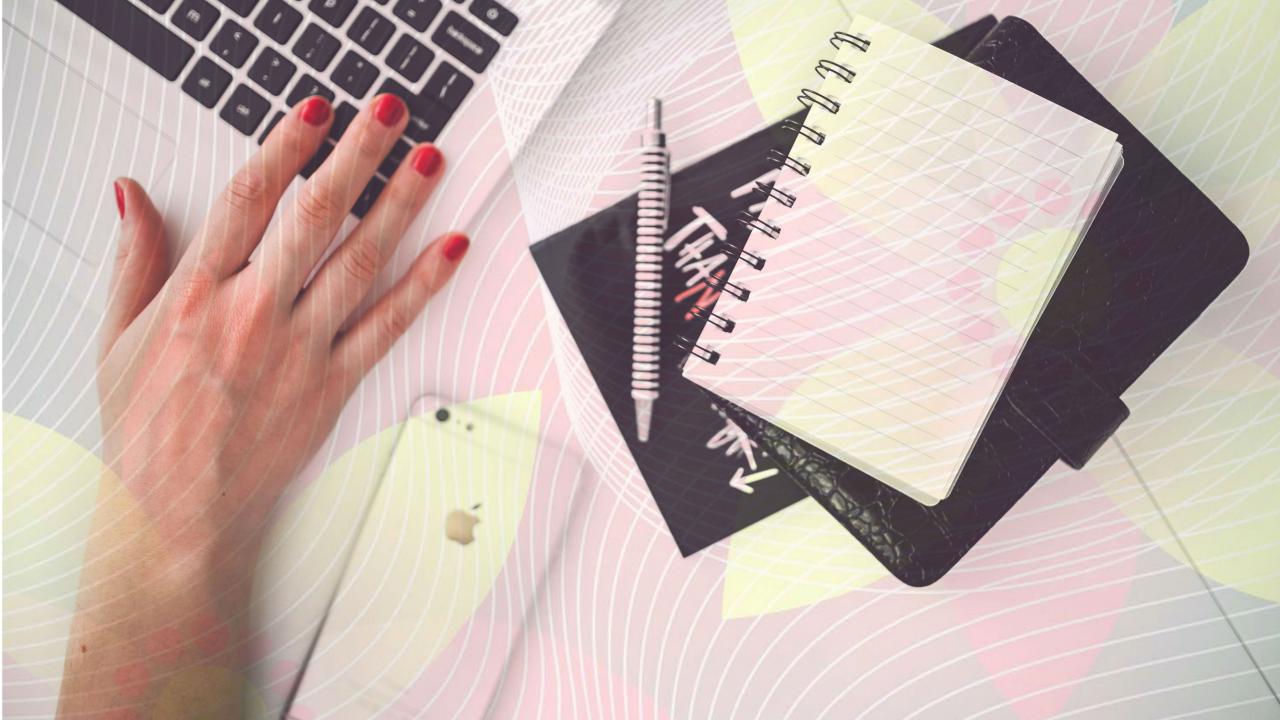There is no doubt that women today are under more stress than ever. One of the “gifts” left to us by the women’s liberation movement is that we not only get to fry-the-bacon-up-in-a-pan at night, but we are also frequently out there in the workforce bringing-home-the-bacon as well.
Add to that the demands of children, homework, soccer practice, PTA, church and other civic activities, our cup truly RUNS over! Super Girl has nothing on us! It’s no wonder that heart disease is the number one killer of women. Sisters, we have STRESS in our lives!
Just how bad our stress level really is was recently brought home in a very real way to me. One of my best girlfriends just had the “pleasure” of a one-night stay at the local heart “hotel” (hospital). This definitely wasn’t her destination when she left for work that morning. She’s a single-parent of two small preschool children. She’s a widow and has no backup at home. (Are we getting the stress level picture yet?) In addition, she works for a company that’s been laying off workers for months and outsourcing jobs overseas. She’s been working 70-80 hour work weeks for months in an effort to ensure her job stays in the good old USA. (Bingo! Stress level gets a 120%!)
As she recalls it, her chest began pounding and hurting unbearably. She was short of breath and couldn’t breathe - sick to her stomach, sweating, dizzy and lightheaded. The pain radiated down her left arm. She tried to ignore it for a while but as the day progressed, the symptoms only increased in intensity. Finally, she phoned the nurse on call with her insurance company who promptly sent her straight to the hospital for evaluation.
Fortunately, this hospital visit had a happy ending. She was diagnosed with a panic or anxiety attack. Some of the symptoms of a panic attack are similar to those of a heart attack. Panic attack symptoms include: chest pain, sweating, shortness of breath, rapid heartbeat, hyperventilation (very rapid breathing), and dizziness/faintness. In addition, a panic attack may also be accompanied by a sense of fear or impending disaster. Other panic attack symptoms may also include trembling, headache, chills, hot flashes, stomach cramps, or tightness in the throat and trouble swallowing.
According to the Mayo Clinic, panic attack symptoms generally last about a half an hour. However, there are exceptions and they can last for hours. In addition, there are instances, such as my girlfriend's experienced, where the symptoms can last up to a day.
Symptoms of a heart attack also include chest pain (described as a “fullness or a crushing” type of pain which may radiate to your left arm, back, neck, jaw and shoulders), sweating, shortness of breath, nausea and an “impending sense of doom.” (Sound familiar?) In addition, symptoms in women can be somewhat different than those experienced by men. Women may also experience heartburn, severe/unexplained fatigue, sleep disturbances, dizziness and clammy skin. The Women’s Heart Foundation also reports that approximately 1/3 of all women do not experience any chest pain at all during a heart attack. In addition, 71% of women report that they experienced flu-like in the weeks leading up to the heart attack.
Since some of the symptoms are similar, you may not be able to easily tell whether you are experiencing a panic attack or a heart attack. While a panic attack is not life threatening, a heart attack certainly can be. When in doubt, seek treatment. It is always better to err on the side of safety than to leave a potential heart attack untreated until it’s too late.
Until next time, here’s wishing you a healthy heart.
Sources:
Chest Pain Definition, The Mayo Clinic, 15 Nov 2007, http://mayoclinic.com/health/chest-pain/DS00016/DSECTION=symptoms
Roger S. Blumenthal, M.D., Is it a Panic (Anxiety) Attack or a Heart Attack?, The John Hopkins Heart Bulletin, 05 July 2006, http://www.johnshopkinshealthalerts.com/alerts/heart_health/JohnsHopkinsHeartHealth_397-1.html
Panic Attacks and Panic Disorder, The Mayo Clinic, 28 March 2008, http://mayoclinic.com/health/panic-attacks/DS00338
Heart Attack, The Mayo Clinic, 30 Nov 2007, http://mayoclinic.com/health/heart-attack/DS00094
McSweeney, Cody, OSullivan, Elberson, Moser, Garvin, Women’s Early Warning Symptoms of Acute Mycardial Infraction, Circulation – Journal of the American Heart Association, 03 Nov 2003, http://circ.ahajournals.org/
Heart Attack Symptoms: An Action Plan for Women, Women’s Heart Foundation, 2007, http://www.womensheart.org/content/HeartAttack/heart_attack_symptoms_risks.asp






Add a Comment21 Comments
@Anon.... I want to apologize. For some reason, I never got a notice of your post and hope that somewhere over the past year someone has able to help you cope with your anxiety attacks. I've made a visit to the ER myself for panic attacks so I definitely relate to how frightening and overwhelming it can be. I did some research and there are a number of medications that are sometimes used to treat anxiety disorder such as Zoloft, Paxil, Celexa, Cymbalta, Effexor, Klonopin, and Ativan. Some opt for natural remedies such as kava, valerian or passionflower. I also read that anti-depressants are sometimes an option along with psychotherapy.
Regular aerobic exercise is reported to help with panic attacks along stress management techniques, deep breathing exercises, meditation, and yoga. This is the path that I took when I was having anxiety attacks and it helped me reduce my stress and eventually the attacks stopped. I would encourage you to try some of these activities and make time for you. Please feel free to send me an email if you still need more info or help. Mary
February 8, 2012 - 9:30pmThis Comment
Thank you for your response, anonymous. That is some great information that you found and certainly information that is pertinent to women's health.
February 28, 2010 - 11:42amThis Comment
Research by the National Institutes of Health (NIH) indicates that women often experience new or different physical symptoms as long as a month or more before experiencing heart attacks.
Among the 515 women studied, 95-percent said they knew their symptoms were new or different a month or more before experiencing their heart attack, or Acute Myocardial Infarction (AMI). The symptoms most commonly reported were unusual fatigue (70.6-percent), sleep disturbance (47.8-percent), and shortness of breath (42.1-percent).
February 27, 2010 - 5:13amSurprisingly, fewer than 30% reported having chest pain or discomfort prior to their heart attacks, and 43% reported have no chest pain during any phase of the attack. Most doctors, however, continue to consider chest pain as the most important heart attack symptom in both women and men.
This Comment
Well you are saying quite right. In now days women are under great stress.
February 10, 2010 - 3:16amThis Comment
I could not agree more about feeling paralyzed by the anxiety. I know that her stress level by that point was so high, coupled with, as you say, feelings that she had to meet all the responsibilities, were overwhelming. I'm glad it was just an anxiety attack and not the real thing.
January 20, 2010 - 11:35amThis Comment
When you are in the midst of such anxiety, it can be paralyzing to the point of not knowing what to do. Your friend probably thought about calling the doctor earlier, but felt she just couldn't "afford" the time due to all her responsibilities.
January 19, 2010 - 11:45amThis Comment
it lasted for a few hours because the turbulence just would not stop. When you are in the midst of such anxiety, it can be paralyzing to the point of not knowing what to do. Your friend probably thought about calling the doctor earlier
January 19, 2010 - 1:08amThis Comment
The symptoms of a heart attack are pretty specific. A tightening of the chest that progressively gets worse. Like bricks on your chest. A numbing or paralysing of the left arm. Nausea and vomiting are also common. A panic attack is more general as far as symptoms go. It basically is an "all over tingling" or feeling like you are just going to pass out. It almost feels like your brain is telling you you are in danger and to run or feel fear. Heart attacks statistically are uncommon in 18 year old, while panic attacks are way more common. Obviously if these occurrences continue medical attention is needed. Even for anxiety attacks.
November 21, 2009 - 12:16amThis Comment
Oftentimes panic attacks lead to chronic hyperverventilation which is quite a debilitating condition where one feels as though they one cannot get a proper breath (along with tingling fingers, dizziness, brain 'fog' etc). The symptoms are present a lot, not just in an acute situation like with a panic attack. Women need to know about this as it often strikes in our 20s or 30s, it is related to stress and it is frequently misdiagnosed.
Brenda
September 17, 2009 - 3:43pmThis Comment
Mary,
I'm so glad your girlfriend was okay. It sounds like her day was truly frightening. I had a panic attack on a very turbulent international flight a few years ago, and it lasted for a few hours because the turbulence just would not stop. When you are in the midst of such anxiety, it can be paralyzing to the point of not knowing what to do. Your friend probably thought about calling the doctor earlier, but felt she just couldn't "afford" the time due to all her responsibilities. Had she been having a true heart attack, that delay might have cost her dearly.
So I want to echo your words: When in doubt, seek treatment. A doctor will never tell you that you are stupid or overreacting. In fact, they will most likely praise you for taking action.
September 17, 2009 - 9:00amThis Comment